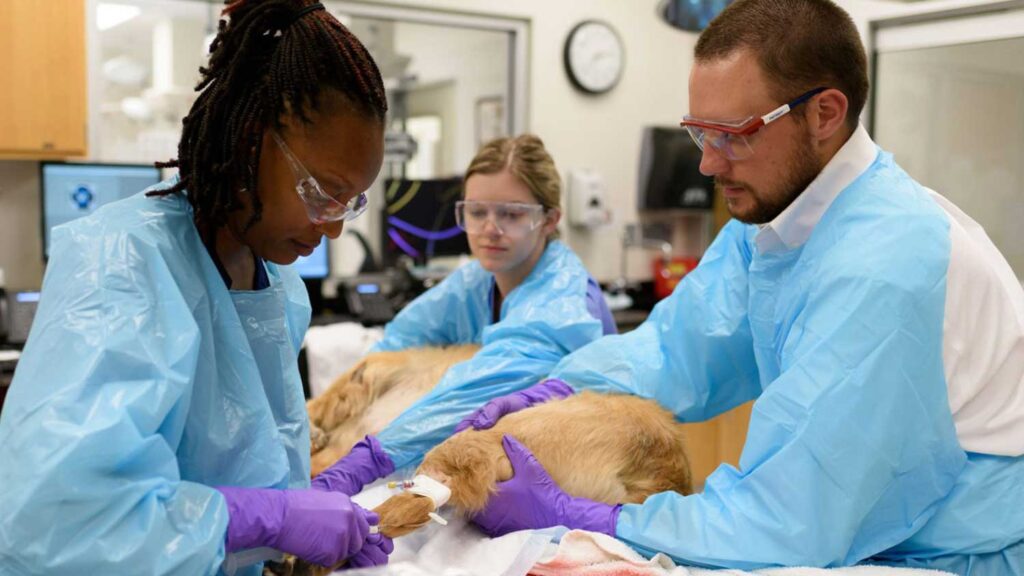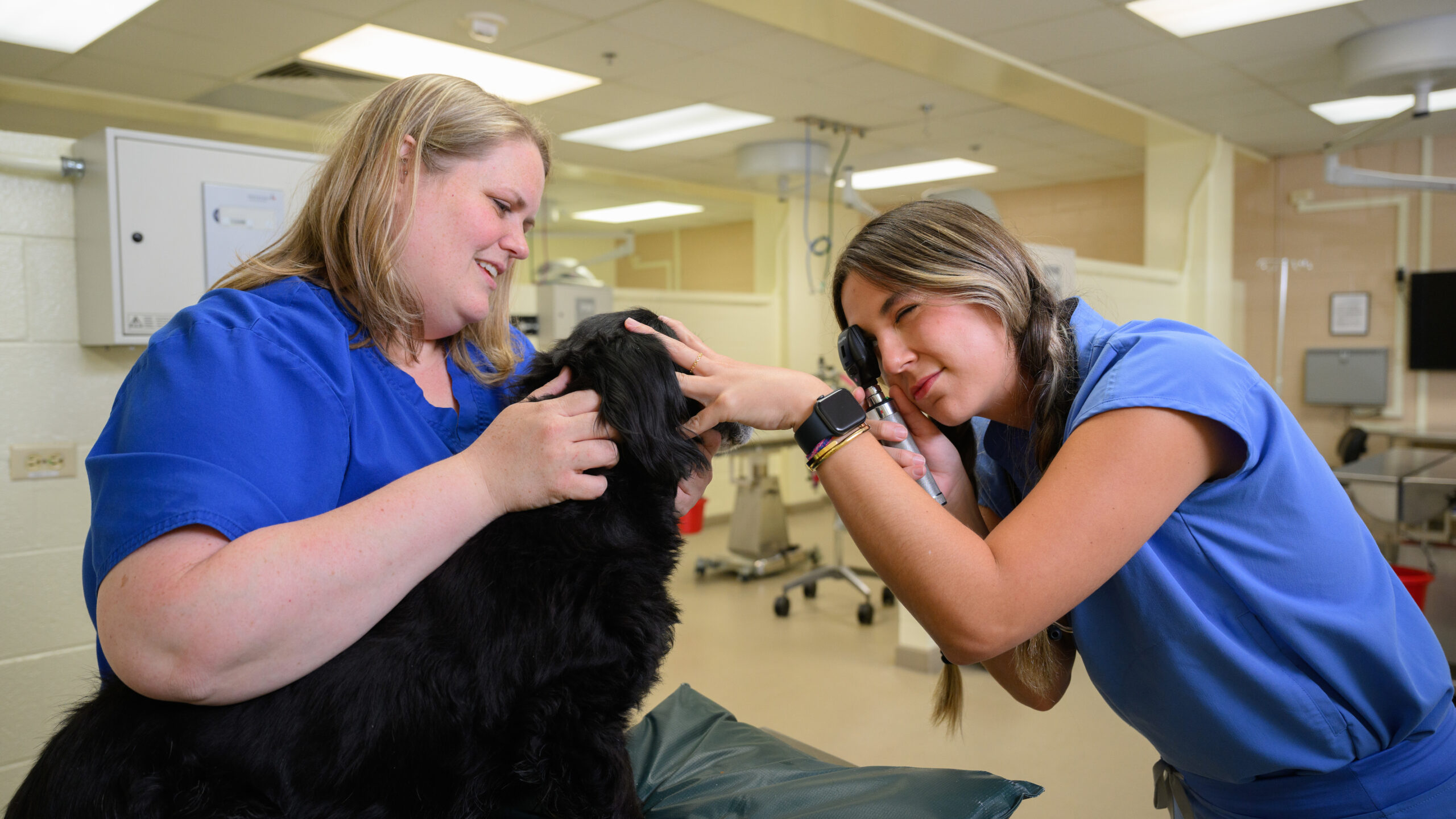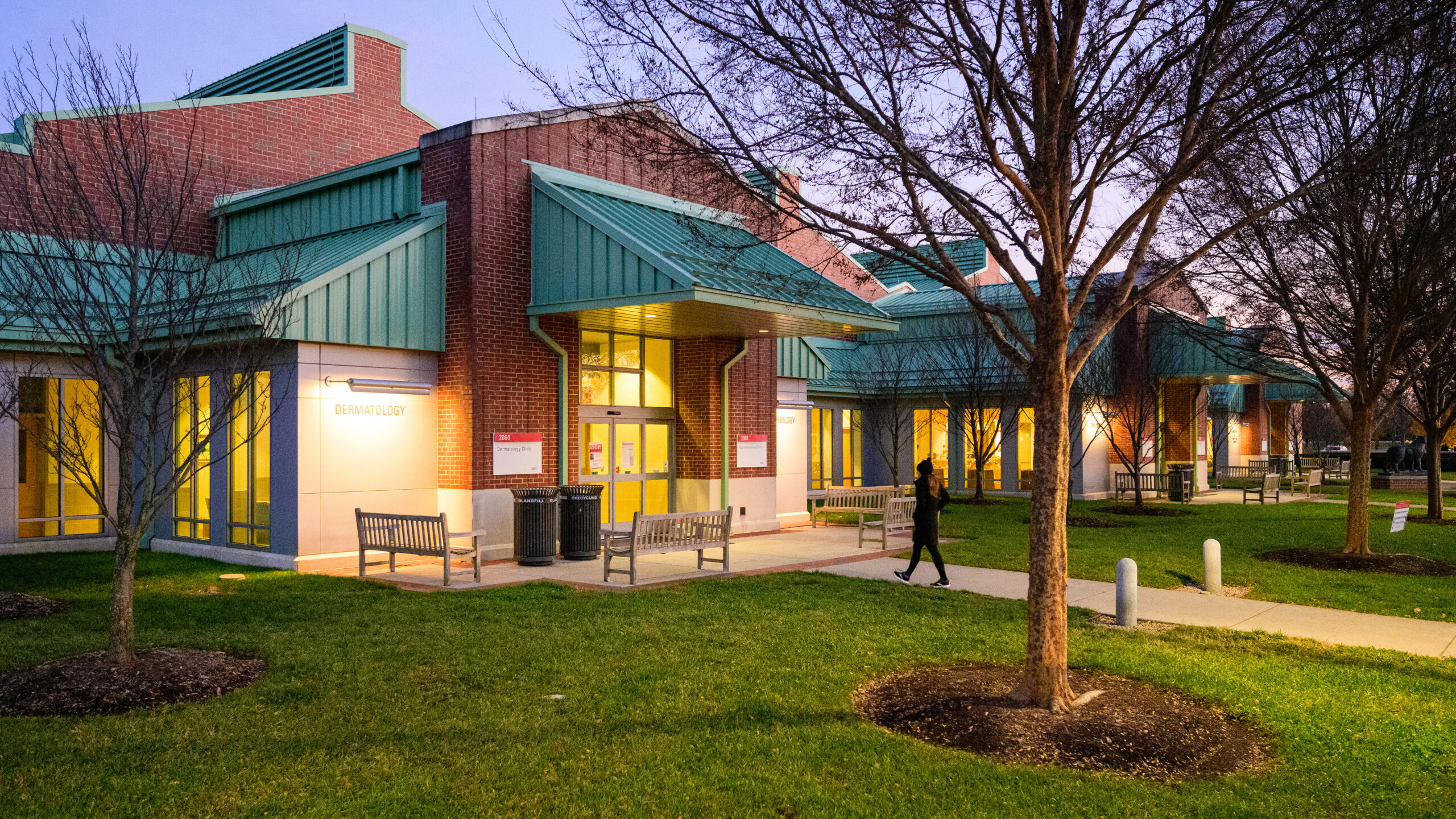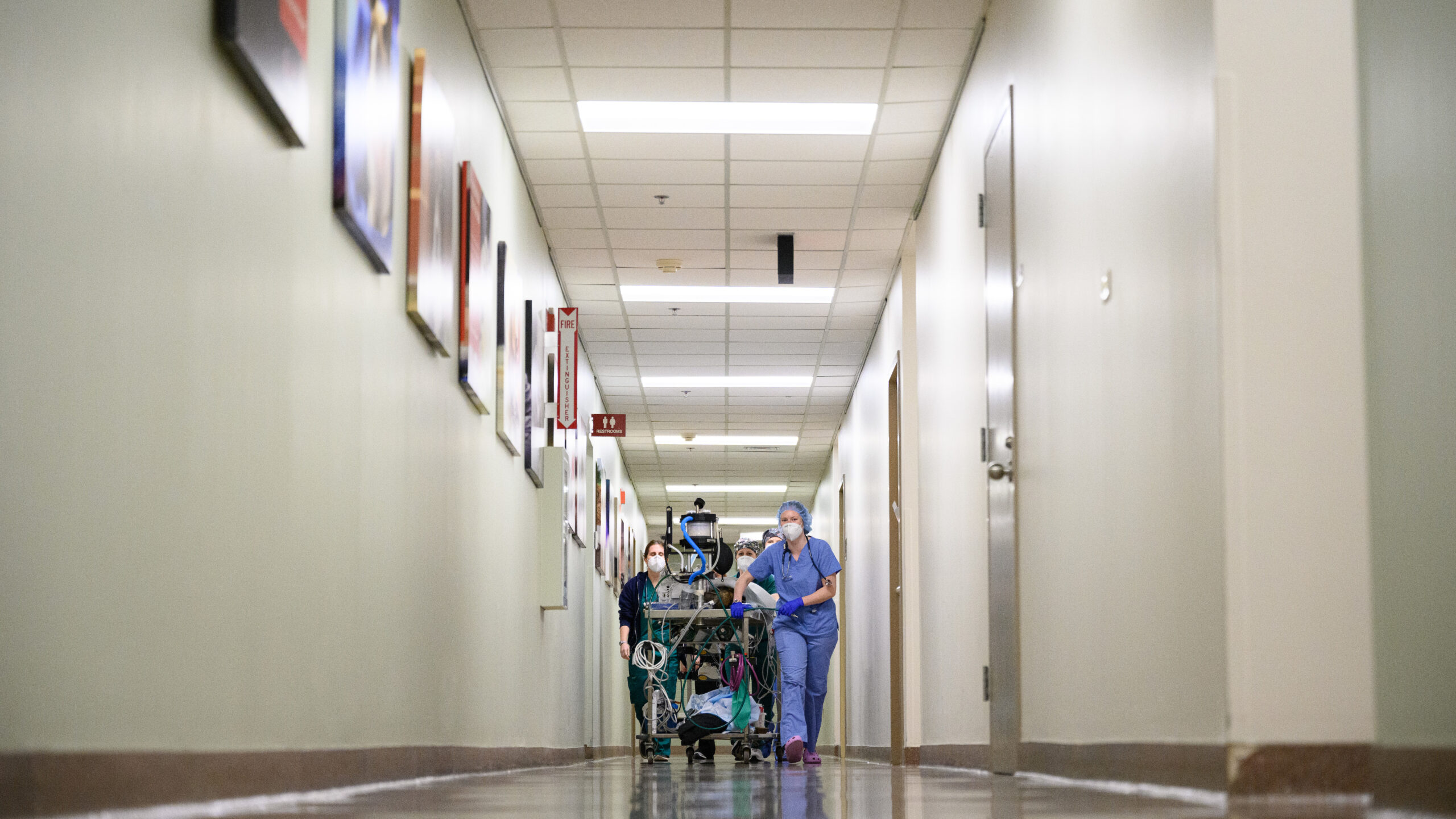Medical Oncology
Our team of medical oncologists are experts in diagnosing cancer and treating cancer using drug treatments such as chemotherapy.

Overview
Our medical oncology service is staffed by a dedicated team of veterinarians, veterinary technicians, and clinician-scientists. Our mission is to be a premier veterinary oncology program in the US, as evidenced by our commitment to compassionate patient care, collaborative research, and innovation in cancer diagnostics and therapeutics.
Our teaching hospital provides a comprehensive range of specialties, located conveniently within the same building. The medical oncology team partners with other departments including clinical pathology, dentistry, dermatology, emergency/critical care, histopathology, internal medicine, neurology, ophthalmology, radiology and surgery. Emergency and critical care services are available 24 hours a day, 365 days a year should your pet require emergent care.
We work closely with the Family and Community Services team to provide support for owners dealing with difficult medical decisions and end of life care. Our hospital is one of only a handful of veterinary facilities in the country to include a social worker on the veterinary medical team with the goal of providing family-centered care.
Contact Us
- Hours: Monday through Friday, 8 a.m to 5 p.m
- Phone: 919-513-6690
- Email: NCStateOncology@ncsu.edu
Common Cancers and How We Treat Them
- Feline Mammary Tumors
- Canine Heart-Based Tumors
- Feline Mast Cell Tumors
- Canine Hepatobiliary Tumors
- Canine Lymphoma
- Canine Low-grade Lymphoma / Chronic Lymphocytic Leukemia
- Canine Thyroid Carcinoma
- Bone Tumors
- Hemangiosarcoma in Dogs
- Mast Cell Tumors in Dogs
- Urothelial Carcinoma
- Feline Injection Site Sarcoma
- Canine Apocrine Gland Anal Sac Adenocarcinoma
- Feline Low-grade Lymphoma
- Feline Lymphoma
- Canine Lymphoma Rescue Protocols
- Feline Oral Squamous Cell Carcinoma
- Canine Histiocytic Sarcoma
- Canine Mammary Tumors
- Cancer Staging
- Canine Soft Tissue Sarcoma
- Canine Oral Melanoma
- Canine and Feline Intestinal Tumors
- All About Palladia
- Stelfonta
- Canine Multiple Cutaneous Mast Cell Tumors
Clinical trials
Our research teams frequently conduct clinical studies that look for pets suffering from food allergies and other dermatological issues. Participating in a clinical trial could help reduce the cost of treatment of your pet at NC State. See our current clinical trials.
What to Expect
An initial consultation consists of a complete review of your pet’s medical history, including all previously performed labwork and imaging tests. You will meet your attending veterinarian, who will ask further questions about your pet’s history and clinical signs, perform a physical examination, and make recommendations for further diagnostic and treatment options. All of the resources of the Veterinary Hospital at North Carolina State University are available for use, if needed.
Appointments and Referrals
Appointment Guidelines
The Medical Oncology service is a referral-only service. Your primary veterinarian can contact our service via telephone (919 513 6690) or email to initiate the referral process. You can also ask your veterinarian to provide you with a referral to our service at any point. If your pet was recently seen by our service, or you were directed to our service after seeing another specialty service at our hospital, you can call to directly set up your appointment.
You should prepare for a half to full day for your pet’s first appointment. Our service works in conjunction with other hospital services in a team approach to help your pet to ensure optimal care is delivered. This team approach takes time and we appreciate your patience.
Fees
The fee for the consultation with the Medical Oncology service is approximately $287. (Please Note: As of August 1, 2022, a $65 fee will be charged to all clients who do not call and/or show up for their appointment.) There are additional costs associated with emergencies. A typical visit including the clinical evaluation of the extent of disease (which can include radiographs (x-rays), ultrasound, aspiration of lymph nodes) can range from $1500-$2000. If advanced imaging techniques are recommended (e.g. CT scan), costs will be higher. Treatment costs vary based on diagnosis. We will provide owners with an estimate in regards to the prognosis and explain both curative-intent and palliative care options. Owners can expect a discussion of potential benefits and side effects as well as an estimate of costs for any therapies proposed.
Frequently Asked Questions
What caused my pet’s cancer?
Cancer most often results from a combination of genetic and environmental factors. Evidence for a genetic cause of cancer in companion animals is supported by the many examples of breed predispositions to certain tumor types. The majority of genetic alterations that eventually lead to cancer occur because of spontaneous mutations. These mutations may occur as a result of chronic exposure to known cancer-causing substances. Nutrition, hormones, viruses, carcinogens, pesticides, UV light, and asbestos, are all factors that might increase the risk of cancer in pets.
Will performing a biopsy cause the cancer to spread/become more aggressive?
While tumor cells can disseminate into the bloodstream during surgery, the ability of these cells to implant within other tissues is extremely poor, and most circulating tumor cells are rapidly destroyed by the host’s immune system. Biopsies should be planned so they can be obtained from a region of the tumor that can be entirely removed with a more definitive surgical excision or be included in the radiation field, should that be recommended as treatment.
Will my pet become sick from chemotherapy
Less than 25% of all animals receiving chemotherapy will experience side effects from therapy. This generally entails mild and self-limiting gastrointestinal upset and/or lethargy that occur in the first few days following treatment. These signs can usually be controlled using over the counter or prescription medications. Less than 5% of patients have severe side effects that require medical attention. With appropriate management, the risk of these side effects causing the death of a patient is less than 1%. In general, the quality of life for patients receiving chemotherapy is excellent. Studies show the majority owners are happy with their decision to pursue treatment for their pets and would elect to pursue treatment again after seeing how well their animals did during therapy.
Facts about chemotherapy
As in people, many cancers in pets are treated with surgery, radiation therapy, chemotherapy, immunotherapy or some combination of these modalities. Chemotherapy is used to treat tumors that have high likelihood of spreading throughout the body, or for cancers where surgery or radiation therapy cannot be done.
Chemotherapy carries a negative impression, especially with our understanding of chemotherapy in human medicine. Our approach to chemotherapy in veterinary medicine is focused on limiting severe side effects and providing increased quality of life. Doses are adjusted and your pet is monitored to limit severe side effects.
What is chemotherapy?
Chemotherapy is drug therapy designed to kill or slow the growth of cancers. Many of the drugs used to treat cancer are derived from natural substances such as plants or trees or even bacteria. The drugs used to treat cancers in pets are often the same drugs used in people. There are several veterinary specific oncology treatment options as well.
What is a chemotherapy drug protocol?
A chemotherapy protocol refers to a set schedule of drug(s) given in a specific time frame. Chemotherapy protocols can incorporate one or several drugs. Some protocols have more than one drug given on the same day, while others alternate drugs over time. Protocols are designed to optimize anti-cancer benefits and adherence to the planned schedule is of utmost importance. Your veterinary oncologist will let you know if/ when it’s appropriate to alter the protocol.
How is chemotherapy given?
The most common ways chemotherapy is administered is intravenously or orally. Drugs can also be injected under the skin (subcutaneously) or into a muscle. In some cases, the drug may be injected directly into the tumor itself. Most intravenous injections of chemotherapy are administered over a few seconds to minutes and most pets require little more than gentle restraint and some loving attention to sit still. Some infusions of chemotherapy last a few hours or longer. In rare cases, a mild sedative will be administered to help facilitate administration of a treatment.
Some oral chemotherapy drugs can be given at home. These medications cannot be crushed or split and capsules cannot be broken open. If you are giving chemotherapy at home, you will be instructed on the proper way to administer medications and what precautions to take to protect yourself from exposure. Women who are pregnant or breastfeeding and immunocompromised individuals should not handle chemotherapy.
Many owners incorrectly believe oral chemotherapy drugs are less toxic than injectable drugs. However, the side effect profiles for most chemotherapy drugs are the same, therefore it’s important to discuss any concerns you have about treatment with your veterinary oncologist before deciding on a plan.
How should I handle body fluids while my pet is on chemotherapy?
If your pet urinates or defecates or vomits within 24-72 hours after receiving chemotherapy, we recommend you wear gloves and clean the area with disposable items (e.g. paper towels) and detergent first, then a disinfectant. Do not spray the affected area with cleaner – this can cause aerosolizing of particles and increase risk of exposure. It is better to pour cleaner over the affected area. All items that come into contact with the fluids should be disposed in the trash. Wash your hands thoroughly when you are finished cleaning. In general, it is recommended that any fabric that comes into contact feces, urine or vomitus within 24 -72 hours of chemotherapy administration should be washed in hot water, twice, and separately from other laundry.
How often is chemotherapy given?
Treatment protocols vary. Some drugs are given daily while others are administered once per week or every 2-4 weeks. Your veterinary oncologist will work with you to devise the best plan for your pet’s treatment that also works with your schedule.
How long will my pet receive chemotherapy?
Most protocols have a set number of treatments and may last a few months in duration. Following completion of a planned protocol, we recommend periodic monitoring to ensure no progression of disease is seen, or if detected, that we know about it as quickly as possible. In patients with advanced disease, chemotherapy may be continued as long as it is controlling the cancer and the patient has a good quality of life.
What happens when chemotherapy no longer controls the cancer?
Some pets are cured with treatment while others have their disease controlled for a period of months or years. When disease returns, the cells can be resistant to therapy (in much the same way bacteria can become resistant to antibiotics). Different chemotherapy drugs can be tried, but in some cases, cancer develops resistance to all drugs. At this point, your pet’s clinician will discuss ways to keep your pet comfortable for the remainder of his/her life.
May my pet receive vaccinations while on chemotherapy?
Studies show it is safe to give your pet vaccines while they are receiving chemotherapy, however the response may not be optimal. If your pet is due for vaccines while receiving chemotherapy, be sure to discuss this with your veterinary oncologist to optimize the timing of their administration.
What sort of side effects may my pet have with chemotherapy?
Side effects are treatment associated but most commonly including gastrointestinal upset such as vomiting or diarrhea. Decreased appetite and mild lethargy may also occur. Because these side effects are expected, your pet may be prescribed supportive medications for nausea (should decreased appetite, or increased salivation, drooling occur) and diarrhea. It is best to be proactive with these medications and provide these as soon as symptoms are noted. Chemotherapy can also cause temporary lowering of white blood cell counts, which can leave a pet more susceptible to infection. Bloodwork performed immediately before treatment and periodically afterwards will help assess for this risk. Hair loss is not common, except in breeds with continuously growing hair coats (e.g. poodles, Sheepdogs, etc.) Other side effects are possible but are often unique to individual drugs and would be discussed in more detail should that be a part of your pet’s treatment plan.
Will my pet lose his/her fur?
Fur that is shaved may not regrow while on chemotherapy, and fur in the radiation treatment field may or may not grow back or may grow back white. Certain breeds, such as poodles and Old English sheepdogs, may lose the majority of their hair during chemotherapy. When fur is lost during chemotherapy, it will typically grow back when chemotherapy is finished. Cats and dogs will often lose their whiskers during chemotherapy.
Can my pet be around family members or other animals while undergoing treatment?
Pet’s receiving chemotherapy can interact with all family members. Depending on the chemotherapy protocol the pet is receiving, there may be certain times after a treatment that your pet would be considered at a higher risk for infection, so specific precautions may be necessary for certain time periods following administration. When oral chemotherapy drugs are given at home, it is important that capsules or pills are kept out of the reach of children. If anyone on the household is pregnant, trying to become pregnant, nursing, or considered immunocompromised, they should not handle chemotherapy drugs. If chemotherapy is to be administered at home, chemotherapy approved gloves should be worn and the person handling the drugs should wash their hands afterwards. Chemotherapy pills should never be cut into pieces and capsules should not be opened.The metabolites of the chemotherapy drugs can be present in the urine and/or feces for a few days after treatment. Dogs should be walked away from public areas. Gloves should be worn when handling an animal’s feces, litter, vomit, etc. Hands should be washed thoroughly after handling and potentially contaminated fluids/waste. See Safe Handling of Chemotherapy for Pet Owners.
Resources
- Recheck and chemotherapy instructions
- Safe handling of chemotherapy for pet owners
- Warning signs of cancer in pets
- 5 types of skin cancer in dogs
- What to avoid with a pet cancer diagnosis?
- Chemotherapy Fact Sheet
- Electrochemotherapy – The new wave of cancer treatment?


